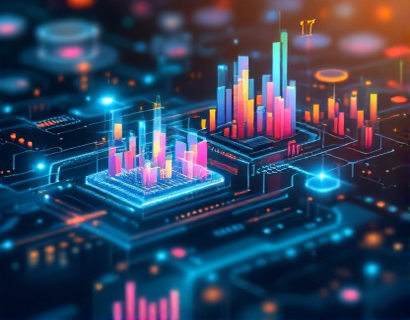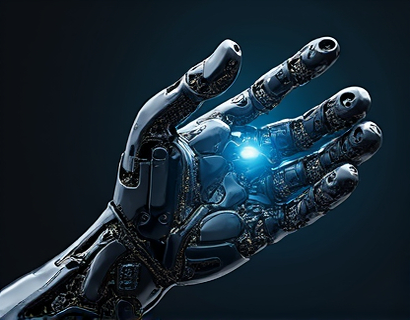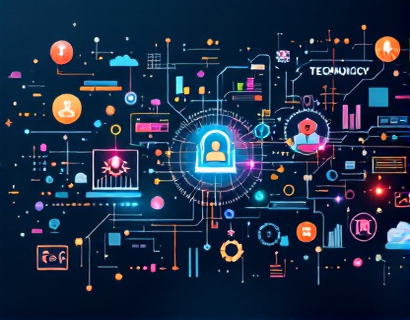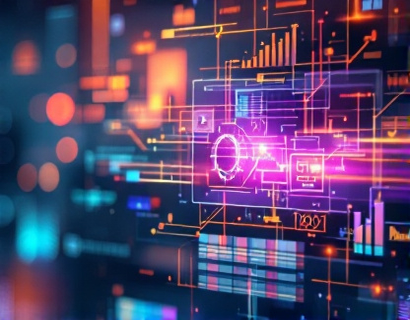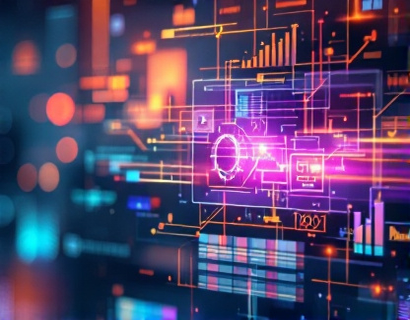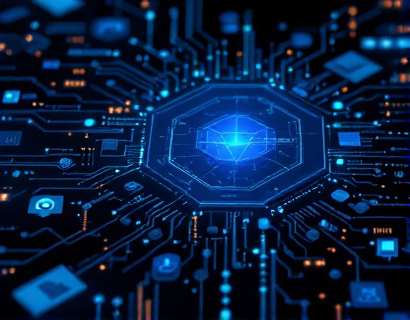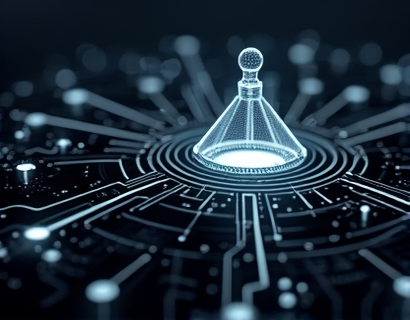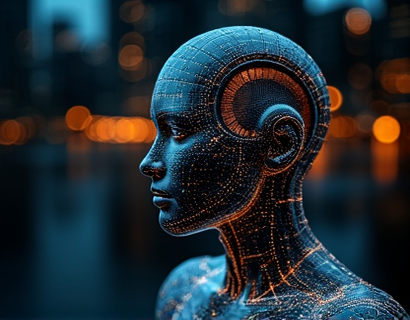Empowering the Future of Digital Services: The Synergy of Crypto and AI
The intersection of cryptocurrency and artificial intelligence is revolutionizing the landscape of digital services, offering unprecedented opportunities for innovation and transformation. This article delves into the latest advancements in tech-driven solutions, exploring how these two powerful technologies are redefining user interactions and enhancing digital experiences. For tech enthusiasts and professionals, this comprehensive look at the evolving landscape of digital innovation provides valuable insights into the transformative impact of crypto and AI on the future of digital services.
The integration of AI into cryptocurrency has given rise to a new generation of smart, adaptive, and secure digital assets. Blockchain technology, the backbone of cryptocurrencies, provides a decentralized and transparent ledger for transactions, while AI enhances this system with intelligent algorithms that can predict market trends, optimize transactions, and ensure security. This synergy not only improves the efficiency and reliability of digital currencies but also opens up new possibilities for their application in various industries.
One of the most significant advancements in this field is the development of decentralized finance (DeFi) platforms. These platforms leverage AI to create automated, trustless financial systems that offer a wide range of services, from lending and borrowing to trading and yield farming. AI algorithms analyze vast amounts of data to identify patterns and make informed decisions, reducing the need for intermediaries and lowering transaction costs. This democratizes access to financial services, making them available to a global audience without the barriers of traditional banking systems.
Another area where crypto and AI are making waves is in the realm of identity verification and digital signatures. Traditional methods of verifying identity are often cumbersome and susceptible to fraud. AI-driven solutions, combined with blockchain, offer a more secure and efficient approach. Biometric data, such as facial recognition and fingerprint scans, can be stored on a blockchain, ensuring that identity verification is both secure and user-controlled. AI algorithms can analyze this data to authenticate users in real-time, providing a seamless and secure experience.
The combination of crypto and AI is also transforming the way businesses operate. Smart contracts, self-executing contracts with the terms directly written into code, are powered by AI to automate complex business processes. These contracts can execute transactions based on predefined conditions, ensuring that all parties adhere to the agreed terms without the need for manual intervention. This not only increases efficiency but also reduces the risk of errors and fraud.
In the realm of supply chain management, AI and crypto are working together to create transparent and traceable systems. Blockchain provides an immutable record of every transaction, from production to delivery, while AI algorithms can analyze this data to optimize logistics, predict demand, and prevent fraud. This level of transparency and efficiency is crucial for industries where trust and accuracy are paramount, such as pharmaceuticals and luxury goods.
The healthcare sector is another area where the integration of crypto and AI is showing promising results. Patient data, when stored on a blockchain, can be securely shared among healthcare providers, ensuring that patients receive the best possible care. AI algorithms can analyze this data to identify trends, predict disease outbreaks, and personalize treatment plans. The use of cryptocurrencies in healthcare can also facilitate secure and private transactions, such as paying for services or purchasing medical supplies, without compromising patient privacy.
In the world of content creation and distribution, crypto and AI are redefining how creators monetize their work. Blockchain-based platforms allow artists, writers, and musicians to tokenize their content, giving fans a direct way to support their favorite creators through cryptocurrency donations. AI can analyze audience preferences and behavior to recommend content, optimize marketing strategies, and even generate original content, creating a more engaging and personalized experience for users.
The gaming industry is also experiencing a digital transformation thanks to the convergence of crypto and AI. Blockchain technology ensures that in-game assets are unique and tradable, while AI enhances gameplay by creating more intelligent and adaptive non-playable characters (NPCs). Cryptocurrencies can be used as in-game currencies, providing players with a tangible value beyond the virtual world. This not only enhances the gaming experience but also opens up new revenue streams for game developers.
As the adoption of crypto and AI continues to grow, the potential for innovation in the Internet of Things (IoT) becomes increasingly evident. Smart devices connected through a blockchain network can communicate and share data securely, with AI algorithms processing this data to provide insights and automate tasks. From smart homes to industrial IoT applications, this synergy can lead to more efficient, secure, and intelligent systems that improve daily life and business operations.
The financial sector is not the only area benefiting from the crypto-AI combination. The real estate market is seeing a shift towards blockchain-based property transactions, where smart contracts can automate the buying and selling process, reducing the need for intermediaries and speeding up transactions. AI can analyze market data to predict property values, identify investment opportunities, and optimize property management. This not only makes the real estate market more efficient but also more accessible to a broader range of investors.
In the field of education, crypto and AI are paving the way for personalized learning experiences. Blockchain can securely store and verify educational credentials, while AI can tailor learning paths based on individual student needs and progress. Cryptocurrencies can be used to reward students and educators, creating a more motivating and inclusive educational environment. This approach not only enhances the learning experience but also ensures that credentials are tamper-proof and easily verifiable.
The environmental impact of digital services is another critical area where crypto and AI can make a significant difference. Blockchain technology can be used to create transparent and verifiable systems for carbon trading, ensuring that emissions reductions are accurately tracked and rewarded. AI can optimize energy consumption in data centers and other infrastructure, reducing the carbon footprint of digital operations. This dual approach not only promotes sustainability but also aligns with the growing demand for eco-friendly technologies.
As the technology continues to evolve, the challenges and opportunities in the crypto-AI space are vast. Security remains a top concern, as the integration of these technologies requires robust measures to protect against cyber threats. Privacy is another critical issue, as the use of personal data in AI algorithms must be handled with care to maintain user trust. Regulatory frameworks are also evolving to address the unique challenges posed by crypto and AI, ensuring that innovation is balanced with ethical considerations.
Despite these challenges, the potential benefits are immense. The synergy of crypto and AI is not only transforming existing industries but also giving birth to new ones. As more businesses and individuals recognize the value of these technologies, the demand for skilled professionals in this field is on the rise. Education and training programs are emerging to equip the next generation with the knowledge and skills needed to thrive in this dynamic landscape.
In conclusion, the intersection of cryptocurrency and artificial intelligence is a powerful force driving the future of digital services. By leveraging the strengths of both technologies, we can create more secure, efficient, and innovative solutions that enhance user experiences and open up new possibilities. For those keen on the intersection of crypto, AI, and next-gen digital services, this is an exciting time to be part of the conversation and contribute to the ongoing transformation.






